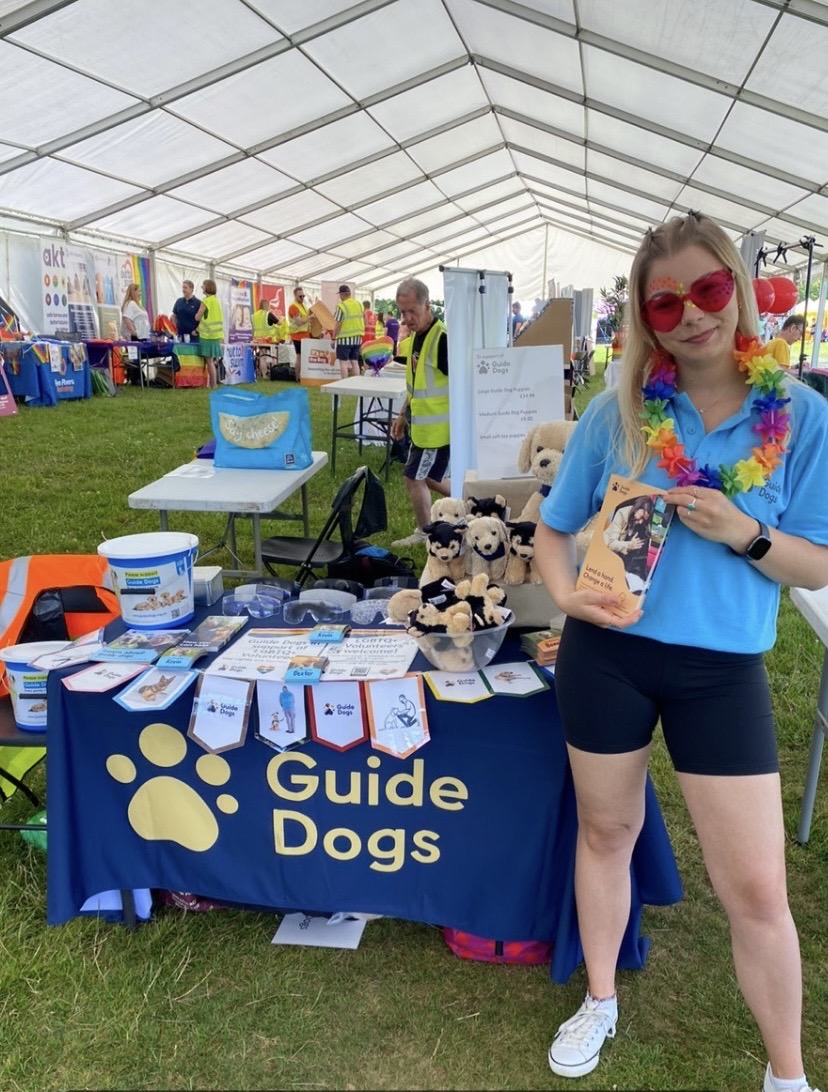Volunteers are vital to everything we do – and at Guide Dogs we’re thankful to each and every one of them. But during the pandemic, as we all experienced changes in our lives, we also found the number of people able to volunteer for us fell. That’s where Pat comes in – she’s a volunteer attraction specialist helping to engage more people into giving up their time and really make a difference for people living with sight loss.
What volunteer roles are there and why are they so important?
We have more than 15,500 volunteers at Guide Dogs, and there are around 80 different types of roles so there really is something to suit everyone’s interests but also the time they have available.
A big focus at the moment is on our volunteer roles with dogs as these were most affected by the pandemic. There is a really big need for people to do things like socialising our puppies or look after our dogs while they are completing their guide dog training.
Fundraising roles are perfect for people who want to give back but maybe have a bit less time because you can take part in as many activities or fundraising events as you can manage.
And finally we have volunteer roles based in the community like My Sighted Guide where you support someone who is blind or partially sighted become more confident and independent, but also as the volunteer you develop a lovely friendship as well.
There really is something for everybody, no matter your background and how much time you have to offer. Volunteers are the foundation of our charity and we wouldn’t be able to support as many people with sight loss as we do without them.

What does your role as a volunteer attraction specialist involve?
My job is to draw as many people as possible to apply for our many different volunteering roles so we can keep expanding and supporting more people with sight loss. Sometimes that involves working with Guide Dogs staff to help them put on amazing events locally, making sure they have the right resources. Other times I work with external advertising agencies like radio stations and newspapers to increase awareness about our volunteering opportunities.
Recently I’ve been working on a radio and leaflet drop campaign to recruit more dog fosterers near our training sites. We sent out personalised letters with pictures of our dogs and worked with local radio stations to spread awareness. It was really fun to work on a campaign like that and we are already getting results.
Why did you want to work for guide dogs?
I’ve been working with volunteers since I left University. Before the pandemic I used to work for a small Bristol charity which supported asylum seekers which was so rewarding but it became more difficult during lockdown. That's when I decided I needed something a bit more uplifting, and I love dogs, so when a job came up at Guide Dogs I knew it would make me happy.
What do you need to be a good volunteer?
There is lots of training involved – especially when it comes to our dog roles and learning best practice. So you need to be willing to learn but you don’t need to love dogs either. We are really looking for people who are passionate about helping others.
Personally I think volunteering is one of the best things I have ever done with my time, and now working for Guide Dogs I see the difference it can make every day. Some of our volunteers say it’s selfish in a way because they get so much out of it too – like being able to spend time with our amazing dogs. But volunteering means you are part of something bigger than yourself and changing lives. There really is no better feeling.
